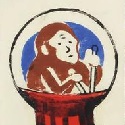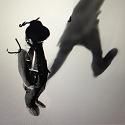Here is ramdomthought!
Re: ramdom jorts
How the fuck do you pull in a club? This shit is so alien to me, yet my mates have no trouble. I've asked them what they do & they just say that I'm missing obvious signs. Bullshit mate, I'm scouting, what am I looking for?!
- 5
-

WikiZuHeltzer - Posts: 181
- Joined: Tue May 13, 2014 5:47 am
- Location: London, UK
- Reputation: 946
Re: ramdom jorts
I really feel for this, referendums on secession/independence are such a touchy subject... Even though the was almost 20 years ago people still get into arguments over it. I really hope things work out without any violence there ;_;
- 1
-

exprof - Posts: 517
- Joined: Wed Jul 31, 2013 7:32 pm
- Reputation: 4715
Re: ramdom jorts
Wow, so I this girl I had a mutual friend with and had a crush on turns out wants my number. I am so psyched.
- 3
-

Stolsdos - Posts: 182
- Joined: Thu Jan 23, 2014 8:32 pm
- Location: tx
- Reputation: 821
Re: ramdom jorts
It seems like even mentioning the potential for a casual relationship on tinder is super taboo, at least where i live. Isn't the whole purpose of tinder just for causal relationships/sex?
- 4
-

Stingray Sam - Posts: 464
- Joined: Thu Sep 12, 2013 6:03 pm
- Location: Ceres Crossroads
- Reputation: 1290
Re: ramdom jorts
One of my favorite things to do is to mix guacamole into spanish rice and then eat it with a spoon.
- 5
-

okayfruit - Posts: 85
- Joined: Tue Oct 29, 2013 3:51 am
- Reputation: 1150
-

nevergreen - Posts: 569
- Joined: Mon Mar 17, 2014 10:10 pm
- Location: Southern California
- Reputation: 3986
Re: ramdom jorts
Job front is actually getting places! I went round and gave my CV to every single lettings agency within a half hour walk of my dads. I have two years experience from when I was at uni and I'm cashing it in in a form of desperation. Got some phone interviews lined up already for next week  . Its not at all where I want to be going but at least I'll have income while I look for something more suited to my preferred career path...
. Its not at all where I want to be going but at least I'll have income while I look for something more suited to my preferred career path...
Also found a raffidas lighter at my mates:

When he asked why I was taking a picture, I had to explain raf and stuff. He's obsessed with the fred perry gear now.
 . Its not at all where I want to be going but at least I'll have income while I look for something more suited to my preferred career path...
. Its not at all where I want to be going but at least I'll have income while I look for something more suited to my preferred career path...Also found a raffidas lighter at my mates:

When he asked why I was taking a picture, I had to explain raf and stuff. He's obsessed with the fred perry gear now.
- 3
-

WikiZuHeltzer - Posts: 181
- Joined: Tue May 13, 2014 5:47 am
- Location: London, UK
- Reputation: 946
Re: ramdom jorts
I haven't had Indian food in like a month literally had a 20 minute dream where I had dinner with random adults from my hometown at a nice Indian restaurant. When I get some money I'm gonna go out for Indian. mmmmm
- 2
-

bobo77 - Posts: 280
- Joined: Wed Mar 26, 2014 6:26 pm
- Location: Central New Jersey and Central Massachusetts
- Reputation: 817
Re: ramdom jorts
this could probably go in the art thread but i think more people would see it here.
on the topic of authenticity of art: do u think it loses authenticity when it starts to be commercialized? and in the case of when art is made for aesthetic purposes, do u think it loses authenticity when it's being bought for its aesthetic value? ndebele murals and paintings were very often politically motivated but also were also used to make an area better looking. today the ndebele themselves (as opposed to the westerners) take huge advantage of the western world's desire for other culture and so people are purchasing the art because they like the look of it.
sort of having trouble putting my thoughts into words atm but i think i made myself clear. curious on anyone's opinion
on the topic of authenticity of art: do u think it loses authenticity when it starts to be commercialized? and in the case of when art is made for aesthetic purposes, do u think it loses authenticity when it's being bought for its aesthetic value? ndebele murals and paintings were very often politically motivated but also were also used to make an area better looking. today the ndebele themselves (as opposed to the westerners) take huge advantage of the western world's desire for other culture and so people are purchasing the art because they like the look of it.
sort of having trouble putting my thoughts into words atm but i think i made myself clear. curious on anyone's opinion
- 0
-

nevergreen - Posts: 569
- Joined: Mon Mar 17, 2014 10:10 pm
- Location: Southern California
- Reputation: 3986
Re: ramdom jorts
Commercialization of art can be art in and of itself. if it weren't, we wouldn't be talking about andy warhol. That said, when commercialization isn't part of the art, the level of commercialization shouldn't affect it. Thomas Kinkade is dull whether or not the painter of light is mass-produced, posters reeled off in masses to sell at a concert aren't any more poorly designed just because they're sold at a mersh table. The only time commercialization should be an issue is if the art itself is anti-commercial but is mass-produced (see: Shepard Fairey).
Ultimately, though, you're the arbiter of what you like and what you consider art ("Art World" notwithstanding) so how you respond to how an artist responds to success will be a personal thing and that's one of the best things about art.
Ultimately, though, you're the arbiter of what you like and what you consider art ("Art World" notwithstanding) so how you respond to how an artist responds to success will be a personal thing and that's one of the best things about art.
- 9

-

odradek - Posts: 993
- Joined: Fri Aug 02, 2013 4:53 pm
- Reputation: 6056
Re: ramdom jorts
your question isn't really about art so much as it is authenticity. Unfortunately I don't have the full text (http://www.researchgate.net/publication ... cago_Blues) but the gist is that you might consider starting to think about authenticity not as a quality, or a fact, but as an argument. The essay is about blues musicians in Chicago and how the entire structure of blues clubs is set up like con games (think 3 card monte on the street). There are shills, marks, and so on. Everyone fulfills a different role. And when you frame the whole deal in this way, authenticity becomes a wholly different question. It's not even a fact. Authenticity depends on whether the mark has been convinced that the show, atmosphere, performers were authentic. It's as simple as that. If someone has been convinced of authenticity, then it's authentic. If they have not, it's not. Again, authenticity as argument, not fact.
Sometimes cultural producers (i.e. artists, gallerists) try to convince you that something is authentic. Other times it's the consumers convincing each other or raising questions of authenticity that the artist never considered.
So to answer your question: art has lost authenticity when it is commercialized only to the extent that you are no longer convinced it is authentic. To others with less knowledge, the commercialized art may be super authentic. To others with more knowledge than you, the art you consider authentic may be inauthentic to them.
Sometimes cultural producers (i.e. artists, gallerists) try to convince you that something is authentic. Other times it's the consumers convincing each other or raising questions of authenticity that the artist never considered.
So to answer your question: art has lost authenticity when it is commercialized only to the extent that you are no longer convinced it is authentic. To others with less knowledge, the commercialized art may be super authentic. To others with more knowledge than you, the art you consider authentic may be inauthentic to them.
- 4
-

yoyobeat - Posts: 433
- Joined: Tue Jul 15, 2014 7:18 pm
- Location: Dogenzaka Hill || Favorite fabric: cotton moleskin
- Reputation: 2819
Re: ramdom jorts

I wasn't going to say anything, but you do realize that the entire list is opinion pieces right?
- 8
my mother is a kenzo fish sweater
-

charybdis - Posts: 515
- Joined: Sat Sep 14, 2013 3:51 pm
- Reputation: 2652
Re: ramdom jorts
That doesn't help me feel any better about the over abundance of strawman arguments.
- -5
-

IsaiahSchafer - Posts: 288
- Joined: Tue Oct 08, 2013 4:14 pm
- Reputation: 1300
Re: ramdom jorts
i'm getting ahead of myself, but a little worried that elderliness = irrelevance in America. So many times I'll see old people hobbling down the street by themselves, and I get this sad, beige feeling. How can I show respect to elderly people, both those I know and don't know, without patronizing them?
- 3
-

yoyobeat - Posts: 433
- Joined: Tue Jul 15, 2014 7:18 pm
- Location: Dogenzaka Hill || Favorite fabric: cotton moleskin
- Reputation: 2819
Re: ramdom jorts
>"I do not like this" =! "this lacks journalistic integrity" though
Never even said I didn't like those though I guess I implied it, and I said why it lacks journalistic integrity- strawman arguments. Which makes what you've said a little bit ironic, given my mention of misrepresenting someone's argument.
>Of all the things to have a fucking cry about
Integrity? What a dumb thing to complain about? Journalists exploiting hyperbole, misrepresenting arguments, making click-bait articles just to pander to an audience.
Man, fuck you guys. I would hope more for care-tags than letting it be just a sounding board. What the hell is "come on man" even supposed to mean? I simply present my view on how people presented their argument, and how I didn't like it. Not even taking a side, and everyone has to come out to vaguely insult or put down my opposition to not even to the argument, but how they argued it. That is some really stupid "shit" to get sick of. fuck that.
Never even said I didn't like those though I guess I implied it, and I said why it lacks journalistic integrity- strawman arguments. Which makes what you've said a little bit ironic, given my mention of misrepresenting someone's argument.
>Of all the things to have a fucking cry about
Integrity? What a dumb thing to complain about? Journalists exploiting hyperbole, misrepresenting arguments, making click-bait articles just to pander to an audience.
Man, fuck you guys. I would hope more for care-tags than letting it be just a sounding board. What the hell is "come on man" even supposed to mean? I simply present my view on how people presented their argument, and how I didn't like it. Not even taking a side, and everyone has to come out to vaguely insult or put down my opposition to not even to the argument, but how they argued it. That is some really stupid "shit" to get sick of. fuck that.
- -2
-

IsaiahSchafer - Posts: 288
- Joined: Tue Oct 08, 2013 4:14 pm
- Reputation: 1300
Re: ramdom jorts
you're the probably least sympathetic person on this board in terms of the broadly-defined idea of equality between the sexes, and this is going to influence how people react to your statements, especially when they're related to, say, a list of pieces about inequality between men and women.
no one is stopping you from presenting your view, just don't be surprised when you get static
no one is stopping you from presenting your view, just don't be surprised when you get static
- 11
"Authorities say the phony Pope can be recognized by his high-top sneakers and incredibly foul mouth."
-

starfox64 - Posts: 1147
- Joined: Wed Jul 24, 2013 4:41 am
- Location: your mom
- Reputation: 2134
Re: ramdom jorts
actually im in the process of stopping him. go to my kickstarter and donate with how much money you think shows your support for this cause. $20 is like a signature but $100 shows how strong you feel.
edit: negs also show support
edit: negs also show support
- -8
Last edited by sidewalk on Mon Sep 15, 2014 9:43 pm, edited 1 time in total.
-

sidewalk - Posts: 171
- Joined: Mon Jan 13, 2014 10:37 am
- Reputation: 851
Re: ramdom jorts
I think we all have a some sort of projected "woman problem" (yes, I'm self-incriminating myself), even in womenswear fashion too.
Just think about the lack of plus-sized model fiasco. I think there can be a lot of inherent problems within modeling industry in of itself. le XYZ women is no represented enough, blah blah blah
Just think about the lack of plus-sized model fiasco. I think there can be a lot of inherent problems within modeling industry in of itself. le XYZ women is no represented enough, blah blah blah
- 2
Last edited by freddy on Mon Sep 15, 2014 9:40 pm, edited 1 time in total.
-

freddy - Posts: 934
- Joined: Sun Sep 15, 2013 11:35 pm
- Reputation: 1710
Re: ramdom jorts
Hard to pick up on. I
have to pretend that
Russia does and does not.
Appropriate to reduce,
but the men know.
They turned the girl
basically the same.
have to pretend that
Russia does and does not.
Appropriate to reduce,
but the men know.
They turned the girl
basically the same.
- 3

-

bels - Yung Winona
- Posts: 5087
- Joined: Thu Jul 11, 2013 2:43 pm
- Reputation: 18872
Re: ramdom jorts
How am I a misogynist? I've gone back through my own posts even trying to find something. I'll say right now I don't mean to be abrasive, but I will try and be nicer or more sympathetic in how I frame my questions and viewpoints in the future. I believe myself to be far, far from anything resembling a misogynist. I don't consider myself an MRA and I don't consider myself a feminist. I am completely in favor of equality, or equity where applicable.
In all my comments, I've never meant to make people feel like I'm against women or minorities or anything. On the whole, I feel like my approach has been to discourage hyperbole, misrepresentation of another's argument, using false or misleading statistics, and using logical fallacies to try and gain support. “The truth is like a lion; you don’t have to defend it. Let it loose; it will defend itself.” Women are disadvantaged in many regards, and the fact that they are will stand up to scrutiny, so I believe a well-reasoned argument to promote the cause of gaining equality is always better than an underhanded or fallacy-fueled approach. I don't think anyone on this board is guilty of this, but I am trying to provide background for why my distaste for certain articles is not representative of a distaste for the goal they're trying to achieve.
I apologize for being abrasive or offensive or making anyone feel like I'm against you or a cause you support for equality.
In all my comments, I've never meant to make people feel like I'm against women or minorities or anything. On the whole, I feel like my approach has been to discourage hyperbole, misrepresentation of another's argument, using false or misleading statistics, and using logical fallacies to try and gain support. “The truth is like a lion; you don’t have to defend it. Let it loose; it will defend itself.” Women are disadvantaged in many regards, and the fact that they are will stand up to scrutiny, so I believe a well-reasoned argument to promote the cause of gaining equality is always better than an underhanded or fallacy-fueled approach. I don't think anyone on this board is guilty of this, but I am trying to provide background for why my distaste for certain articles is not representative of a distaste for the goal they're trying to achieve.
I apologize for being abrasive or offensive or making anyone feel like I'm against you or a cause you support for equality.
- 4
-

IsaiahSchafer - Posts: 288
- Joined: Tue Oct 08, 2013 4:14 pm
- Reputation: 1300
-

nevergreen - Posts: 569
- Joined: Mon Mar 17, 2014 10:10 pm
- Location: Southern California
- Reputation: 3986
Who is online
Users browsing this forum: No registered users and 9 guests

